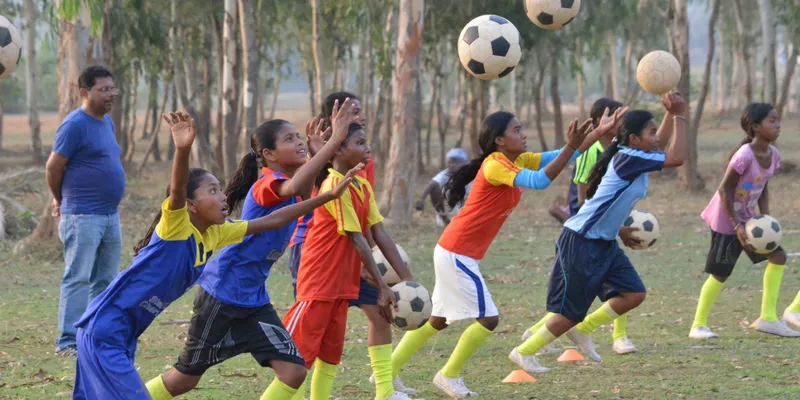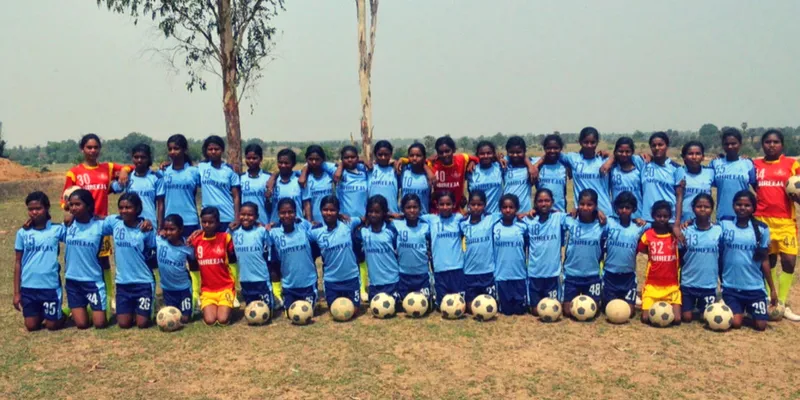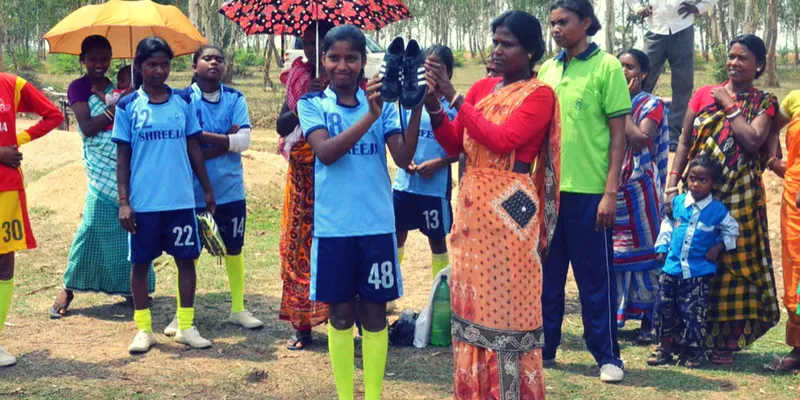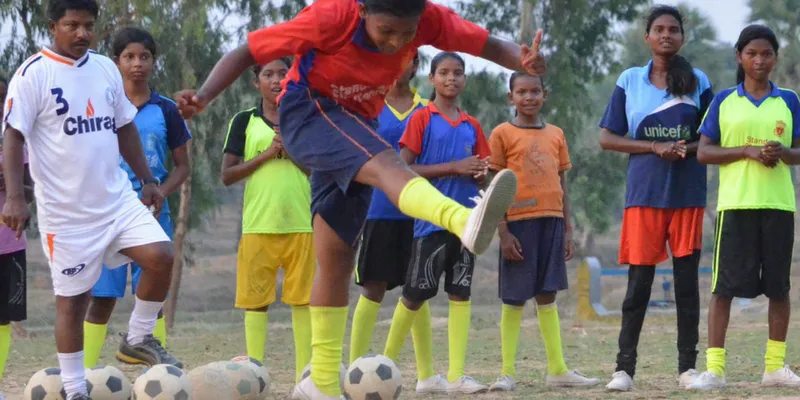Letting girls decide how they want to develop: Shreeja Sports Academy
Shreeja Sports Academy works with more than 40 girls in Birbhum, West Bengal, training them in sports, education, and self-sufficiency.

“What happened? Skype is not working for you?” comes a deep voice over a WhatsApp call, speaking to me in crisp Bangla. “Do you see how your agency is shrinking? Our agencies have grown increasingly dependent on technology,” he says thoughtfully. “But, anyway, that is a story for another day.” Then, from New York, 58-year-oldShib Shankar Dasgupta tells me the story of how his organisation brings adolescent girls together to regain their own agency through football.
In 2015, Shib Shankar started DevKalpana Technologies based out of New York. ‘Kalpana’ means ‘imagination’ in Bangla. “All development is first an idea,” he explains. His company uses mobile technology to bring health awareness about reproductive rights, sexual health, and others to rural women in India and Africa. Violations of basic rights become a norm in underdeveloped societal settings, and DevKalpana aims to break that norm through information, knowledge, and wisdom.
On January 1, 2017, Shreeja Academy was set up in Birbhum with the same three-pronged strategy in mind.
Encourage
Forty-two girls play football at Shreeja. They are coached and provided with sufficient nutrition. The idea is to bring them together and help them feel a sense of belonging. Since most incidents of child marriage and human trafficking take place in a clandestine manner, the involvement with football reduces sexual violence as the girls stay informed of each other’s well-being.
Shib Shankar says, Every time they have a game, I call and speak to the girls. Once, a young girl was in tears when she told me that she had scored a goal and that her team had cheered for her.

This sense of encouragement fosters dreams in them. They are slowly learning to believe that despite their poverty, their families’ disappointment with their dark complexion, the trend of early marriage, the ‘curse’ of being born a girl, they can be teachers, doctors, professionals—they are learning to dream.
Educate
Along with the joy of playing a sport, Shreeja brings supplementary, out-of-school education to these youngsters from about 10 Santal villages from Rajpur block, Birbhum district. Some girls do not play, but are eager to study. The organisation estimates to have about 100 students very soon. “They must pass school to get into colleges or vocational training courses. Where would they be without education?” Shib Shankar questions rhetorically. His love for the girls and the cause is evident. Perhaps, that is why he stays with them for a considerable part of the year, and plans for another three-month visit before the school secondary examination. “I teach them. I have my own way of teaching.”

In 2018, 15 girls are slated to appear for the Class 10 board examinations. For Shreeja, which means ‘beautiful and bountiful’, this is a happy milestone achieved.
The organisation intends to set up unconventional libraries in each village soon. These libraries will have models for scientific education. Education is to be turned from mere facts to need-based, creative knowledge.
Empower
The community is involved. The mothers cook for their daughters’ teachers. Gatherings and meets are organised together. Together, they have planted trees all around the playing field. In monsoon, they are sowing paddy in the field. Shreeja has also distributed seeds of papaya, bitter gourd, banana, and other plants to villagers so that these can be cultivated for the girls’ dietary benefit.
Sexual, menstrual, and other aspects of physiological health are important to Shreeja. Shib Shankar narrates, “After monsoon, we are getting a gynaecologist to check the girls’ health. We are training them to take care of themselves and making them aware of their bodies.” The organisation is looking at getting local women to manufacture low-cost sanitary pads in the near future. For the team of Shreeja, development is empowerment. While football builds teamwork, leadership, strong health, and healthy habits, the focus is also on issues of livelihood. These villagers must become independent—individually, collectively, socially, and culturally.

Shib Shankar muses about the stark contrast of poverty with privilege. He does not believe in ‘appropriate technology’, but in appropriating technology. “Nothing is appropriate,” he says.
We believe we know what the correct way to develop is. That is wrong. Development must be need-based and contextual. At Shreeja, we let the people decide what development is for them.
The organisation depends on donations from well-wishers on their Facebook page, and continues with the resolve to bring the positive effects of technology to these villages in Birbhum.







